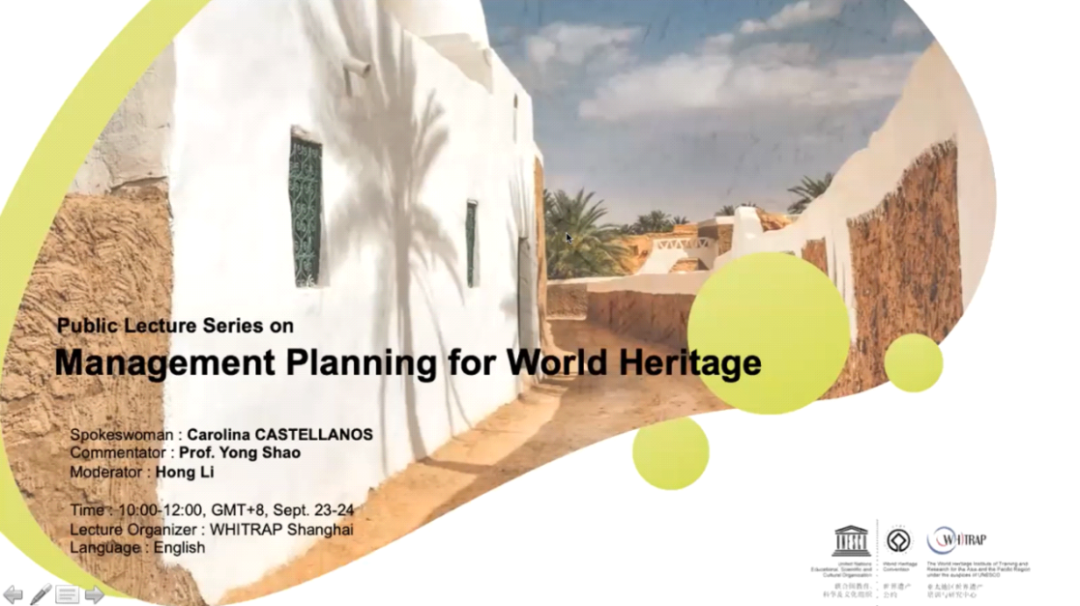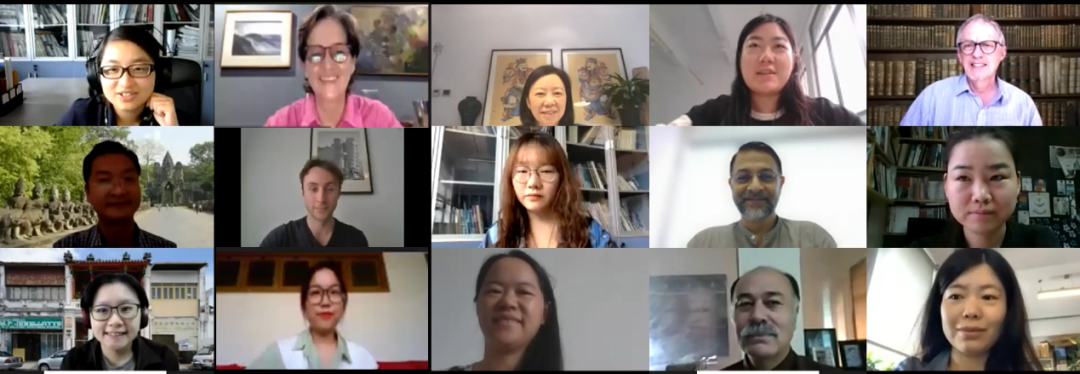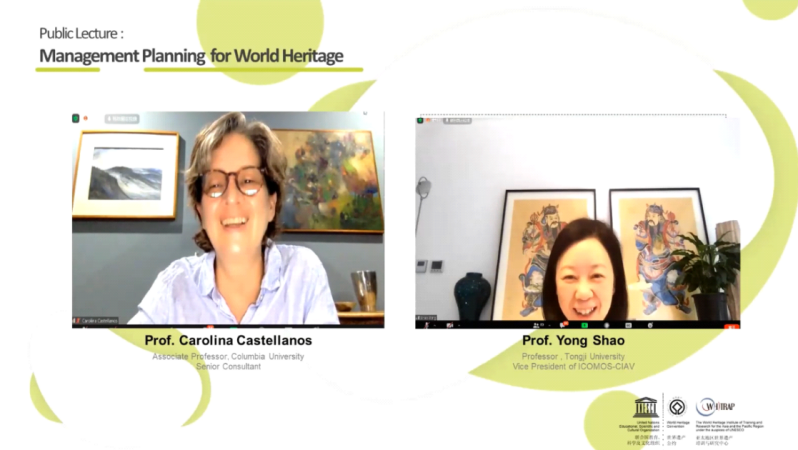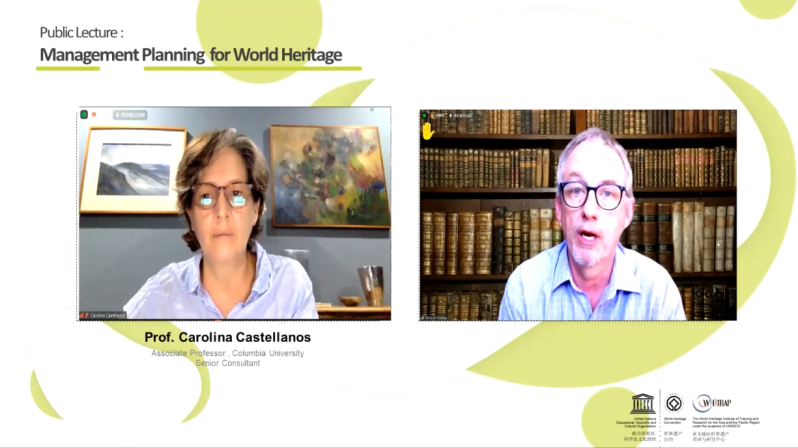| Online Public Lectures on Management Planning for World Heritage |
| PublishDate:2021-09-30 Hits:3524 |
On 23-24 September, WHITRAP Shanghai held the online public lecture series on Management Planning for World Heritage. In total about 170 participants from 17 countries attended the lectures. Management systems/management planning being one of the urgent threats faced by many world heritage properties, this programme endeavours to build the capacity of heritage practitioners in systematic conservation practices, to raise their awareness of the global administrative framework, and to help their practices accord with sustainable development goals.
As the debut of this programme, the lectures on 23-24 September invited Ms. Carolina Castellano, Senior Consultant of World Heritage, as the key speaker. Ms. Shao Yong, Professor of Tongji University, also joined the event as a guest commentator. Ms. Li Hong, programme specialist at WHITRAP Shanghai, moderated the event.
In the lecture on 23rd, Carolina introduced the World Heritage Convention, from its background, the connections with other Conventions to its development over the 40 years. She particularly illustrates the actors of this convention and the operational guidelines as well as the process to be inscribed on the World Heritage List and the periodic reporting requirement after.
The case of Liverpool caused much attention, it was raised at both Q & A sessions. Carolina shared that it got into trouble because of having such development that threatened the attributes of the outstanding universal value and obstruct the dominance of the landscape. Richard Mackay, ICOMOS cultural advisor, also joined this discussion. He added that the reason why Liverpool was removed from the list was that the local authorities failed to take actions to avoid the negative impact to OUV through the planning. They insisted on implementing their development plan against the identified attributes conveying the OUV. The authenticity and integrity of the historical fabric were thus reduced. The local authorities’ recent decision to construct a new football stadium on top of the dockland within the property also constituted a critical factor in deletion.
Before the end of each day’s lectures, there were Q&A sessions where Carolina received around 10 questions from participants. One of the interesting questions was about how to protect the heritage that is not universally recognised but regionally valuable. In answering that, Carolina stated that giving the sites or properties the World Heritage status was "not the only means for protection" and there were many heritage sites of regional significance that were "well cared for by the people who assigned value to them". According to her, "there is no need to make everything world heritage". Yet the World Heritage Convention and the additional recommendation of 1972 do provide some tools to protect other types of heritage and are of referential value.
Overall, the public lectures gave participants an elaborate introduction to the World Heritage System and provided insights for heritage practitioners about the practical management models. As Professor Shao Yong suggests, it is hoped that in the future series of lectures could be held in this regard.
Edited by: Zhu Kaihong, Zhang Yiyang
Reviewed by: Li Hong, Wang Tianxiang
|
- News | WHITRAP Shanghai and CNR-ISPC bilateral meeting
- News | WHITRAP meets Cité de l’Architecture et du Patrimoine
- WHITRAP Hosting "Workshop on Preliminary Assessment for National Focal Points of the Asia Region" in Chengdu
- WHITRAP Shanghai meets UNESCO
- INTERNATIONAL CONFERENCE PRELIMINARY ANNOUNCEMENT & CALL FOR PAPERS
- Observation of the 46th Session of the World Heritage Committee
Copyright © 2009-2012 World Heritage Institute of Training and Research-Asia and Pacific (shanghai)






